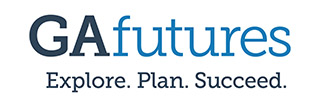Dangers of Credit Cards
While credit cards can be helpful, there are some dangers to be aware of. Here are the potential risks and how to avoid them:
- High-Interest Rates
- Accumulating Debt
- Late Fees and Penalties
- Damage to your Credit Score
- Temptation to Overspend
- Identity Theft and Fraud
- Falling into the Minimum Payment Trap
- How to Avoid These Dangers
- If you don’t pay off your balance in full each month, you'll be charged interest on the remaining amount. Credit card interest rates can be very high, meaning the money you owe can grow quickly if you’re not careful. For example, if you owe $500 and the interest rate is 20%, you might end up owing much more than you originally spent.
- If you constantly use your credit card without paying off your balance, you can quickly get into debt. This can lead to a snowball effect, where you end up owing more and more, making it harder to pay off your balance over time. Credit card debt can be difficult to get out of because of the interest charges.
- If you miss a payment, you’ll likely be charged a late fee. This fee can add up, and it can also result in your interest rate increasing. If you repeatedly miss payments, your credit score will be negatively impacted, making it harder to get approved for other loans or credit cards in the future.
- If you’re not responsible with your credit card by missing payments, spending too much, or accumulating debt it will harm your credit score. A low credit score can affect your ability to get a car loan, a mortgage, or even an apartment. It can also result in higher interest rates when you do borrow money.
- Credit cards make it easy to buy things you may not be able to afford. Because you’re not paying for purchases upfront, it can feel like you’re spending “free money,” which can lead to overspending. This can result in carrying a balance that you’ll have trouble paying off.
- Credit cards are a target for fraud. If someone gets your card information, they could make unauthorized purchases. Although most credit card companies protect you from fraud, it can still be stressful and take time to resolve. Always keep your credit card information secure and report any suspicious activity right away.
Falling into the Minimum Payment Trap
- If you only pay the minimum payment on your credit card, it will take much longer to pay off your balance. Plus, you’ll end up paying more money in interest. For example, if you owe $1,000 on a credit card with a 20% interest rate, and you only pay the minimum, it could take years to pay off the debt and cost you hundreds in interest.
- Pay off your balance in full each month to avoid interest charges.
- Make payments on time to avoid late fees and penalties.
- Don’t max out your credit limit—try to keep your usage below 30% of your available credit.
- Only charge what you can afford to pay back right away to avoid building up debt.
- Monitor your credit card statements regularly to spot any errors or signs of fraud early.
- Use credit responsibly and avoid using it for non-essential purchases or things you can’t afford.
By understanding these dangers and using your credit card wisely, you can avoid getting into trouble and instead use it to build a strong financial future.








